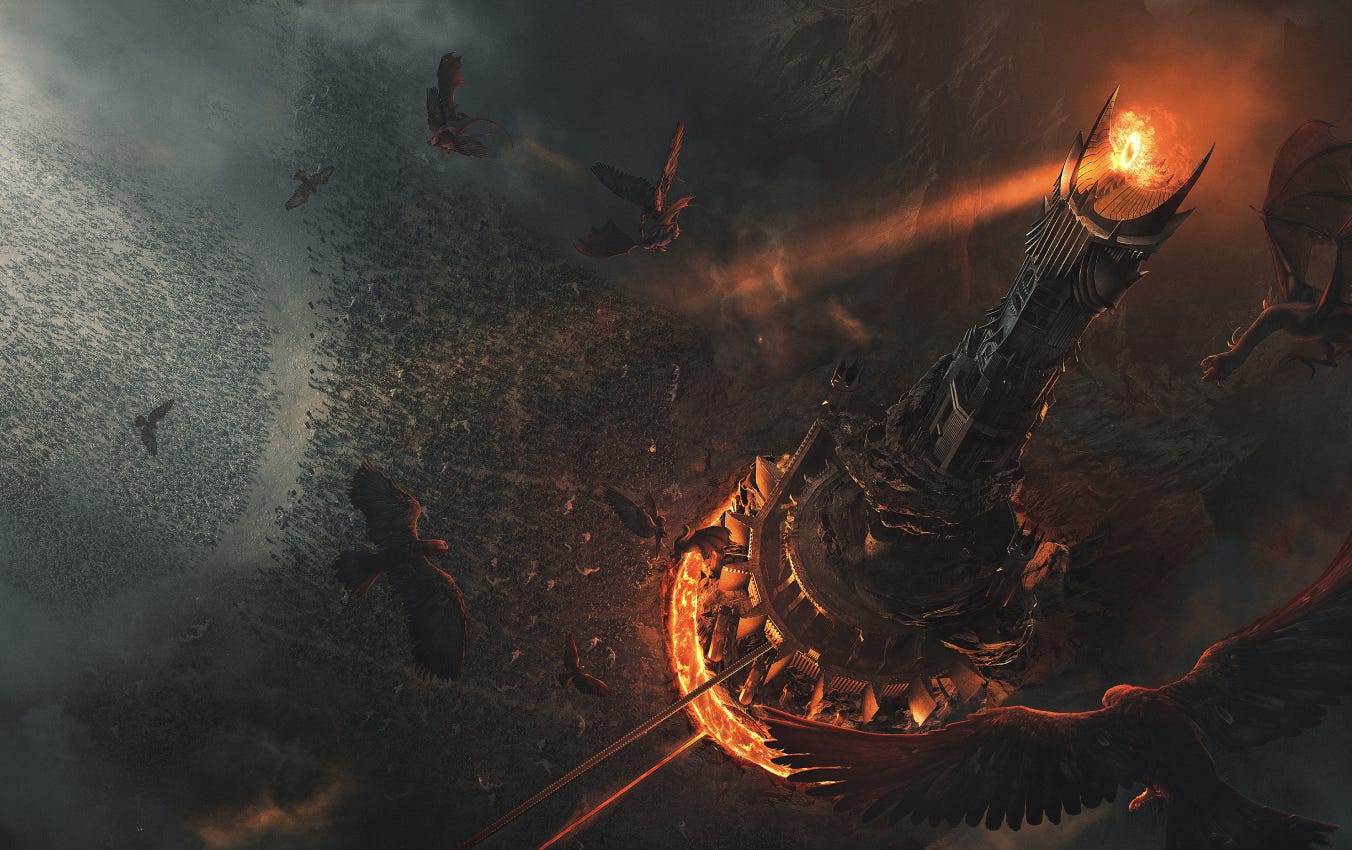Sometimes essays should be short and sweet. We’re experimenting with a new style of essay for the next few months, one that is light and meandering in its scope. This series will act as breadcrumbs for future, longer pieces.
In Tolkien's Lord of the Rings, Aragorn — a valiant ranger — plans to draw the Dark Lord Sauron's eye to the Black Gate, a move that will distract Sauron so that the protagonists Frodo and Sam can slip into Sauron's realm through another route.
Sauron falls for this distraction, because he is controlled by fear of the past, when Aragorn's ancestors chopped off the all-powerful ring from his finger. In trying to avoid a repeat of that event, he fails to see that new problems are simmering.
If only Sauron had studied complex systems in nature, this wouldn't have happened!
Sauron prioritizes his decisions based on the last bad thing that happened - similar to what we do when faced with calamities.
As COVID came, the focus shifted towards investments in healthcare and protection. As the war in Ukraine happened, the focus became energy independence from Russia, as China started to rear its dragon-head, geopolitics came back on the agenda.
As John Gall put it in Systemantics:
“The army is now fully prepared to fight the previous war”
We’re always ready to deal with the previous year’s crisis. But what about the next?
In fact, this backward-looking approach is the basis for most models for prediction.
Even as AI seems to improve, its ability to generalize doesn't seem to go beyond its training data. See for example the use of AI in radiology. When faced with new data or new situations, the AI model struggles to keep up — often dropping accuracy from 90% to 60-70%1.
Prediction then becomes a dangerous game. It cannot generalize for novelty!
So what should Sauron have done?2
Adaptation and Optionality. The example is playful but proves a point: Sauron needed to tame his perceptual blindness, and one of the many ways to do that is allowing his army to evolve in the face of new threats. By keeping his options open, he could have trained his armies to fight all sorts of battles: from huge armies, to a band of hobbits.
This doesn’t require top-down, singular vision prediction. It requires adopting a completely non-Sauron like way of looking at the world: one rich in connections, and evolving relationships.
Mapping out relationships between and within different actors can help you see how situations are evolving.
It’s the only way to fight back Sauron’s bias - and not be haunted by past mistakes.
The term Sauron’s Bias was coined by Jessica Flack and team at SFI in this great Aeon essay.









So you guys are pro-Sauron, eh? 😉